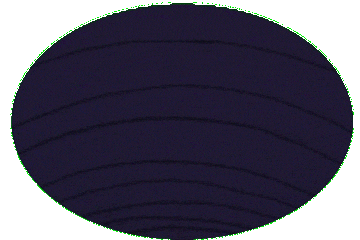polio
Poliomyelitis ( POH-lee-oh-MY-ə-LY-tiss), commonly shortened to polio, is an infectious disease caused by the poliovirus. Approximately 75% of cases are asymptomatic; mild symptoms which can occur include sore throat and fever; in a proportion of cases more severe symptoms develop such as headache, neck stiffness, and paresthesia. These symptoms usually pass within one or two weeks. A less common symptom is permanent paralysis, and possible death in extreme cases. Years after recovery, post-polio syndrome may occur, with a slow development of muscle weakness similar to what the person had during the initial infection. Polio occurs naturally only in humans. It is highly infectious, and is spread from person to person either through fecal–oral transmission (e.g. poor hygiene, or by ingestion of food or water contaminated by human feces), or via the oral–oral route. Those who are infected may spread the disease for up to six weeks even if no symptoms are present. The disease may be diagnosed by finding the virus in the feces or detecting antibodies against it in the blood. Poliomyelitis has existed for thousands of years, with depictions of the disease in ancient art. The disease was first recognized as a distinct condition by the English physician Michael Underwood in 1789, and the virus that causes it was first identified in 1909 by the Austrian immunologist Karl Landsteiner. Major outbreaks started to occur in the late 19th century in Europe and the United States, and in the 20th century, it became one of the most worrying childhood diseases. Following the introduction of polio vaccines in the 1950s, polio incidence declined rapidly. As of October 2023, only Pakistan and Afghanistan remain endemic for wild poliovirus (WPV). Once infected, there is no specific treatment. The disease can be prevented by the polio vaccine, with multiple doses required for lifelong protection. There are two broad types of polio vaccine; an injected polio vaccine (IPV) using inactivated poliovirus and an oral polio vaccine (OPV) containing attenuated (weakened) live virus. Through the use of both types of vaccine, incidence of wild polio has decreased from an estimated 350,000 cases in 1988 to 30 confirmed cases in 2022, confined to just three countries. In rare cases, the traditional OPV was able to revert to a virulent form. An improved oral vaccine with greater genetic stability (nOPV2) was developed and granted full licensure and prequalification by the World Health Organization in December 2023.
This article uses material from the Wikipedia article "polio", which is released under the Creative Commons Attribution-Share-Alike License 3.0.
References
| Title | Summary | |
|---|---|---|
| Richard Perry | ... New York , Perry contracted polio when he was twelve. ... | |












